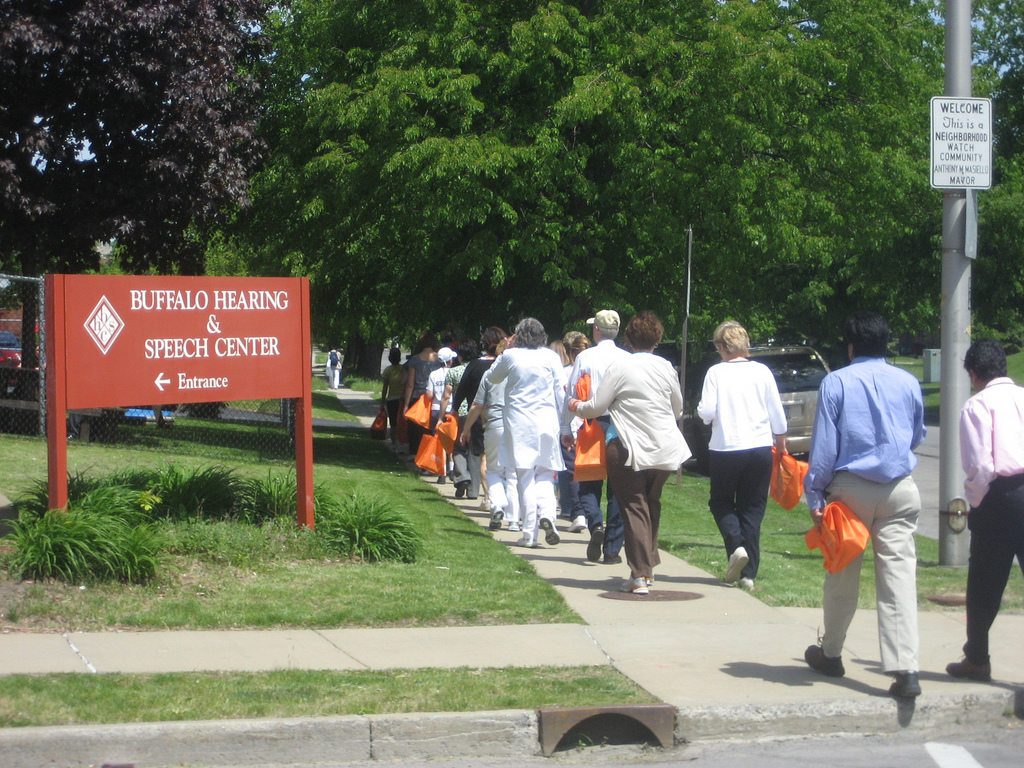Did you know that walking can help prevent many chronic and cardiovascular diseases? On the Buffalo Niagara Medical Campus we are encouraging healthy lifestyles through our Healthy Communities, Wellness, and Transportation initiatives, all created with the goal of improving your quality of life in mind.
Begin your commitment to maintain a healthy lifestyle right where you live and/or work. Walking for 30-40 minutes each day can ultimately have a positive affect on your life expectancy. Join the Walking on Wednesdays group as they meet at Roswell Park Cancer Institute‘s Kaminski Park every Wednesday starting May 23 until September 26 from 12:10 – 12:50 p.m. Every week, there will be a different route and giveaways as the walks take place in rain or shine.
Need more motivation to begin walking while on the BNMC or walking in general? Check out all of the great benefits of walking every day as you add Walking on Wednesdays into your daily activity routines. Walking can:
- Lower low-density lipoprotein (LDL) cholesterol (the “bad” cholesterol)
- Raise high-density lipoprotein (HDL) cholesterol (the “good” cholesterol)
- Lower your blood pressure
- Reduce your risk of or manage type 2 diabetes
- Manage your weight
- Improve your mood
- Help you stay strong and fit
- Burn up at least 100 calories of energy if you walk one mile (1.6km). Walking two miles (3.2km) a day, three times a week, can help reduce weight by one pound (0.5kg) every three weeks.
- Risk factors for cardiovascular disease are also often risk factors for other chronic diseases. Many risk factors are related.
- Reduce the risk for cardiovascular diseases associated with physical inactivity. Risks for cardiovascular disease associated with physical inactivity are similar to that of cigarette smoking.
For more information on how walking can increase your health, take a short 10 minute break to watch the video below by the University of Toronto’s Dr. Mike Evans, who is a family physician at St. Michael’s Hospital and an Associate Professor of Family Medicine and Public Health for the university.




